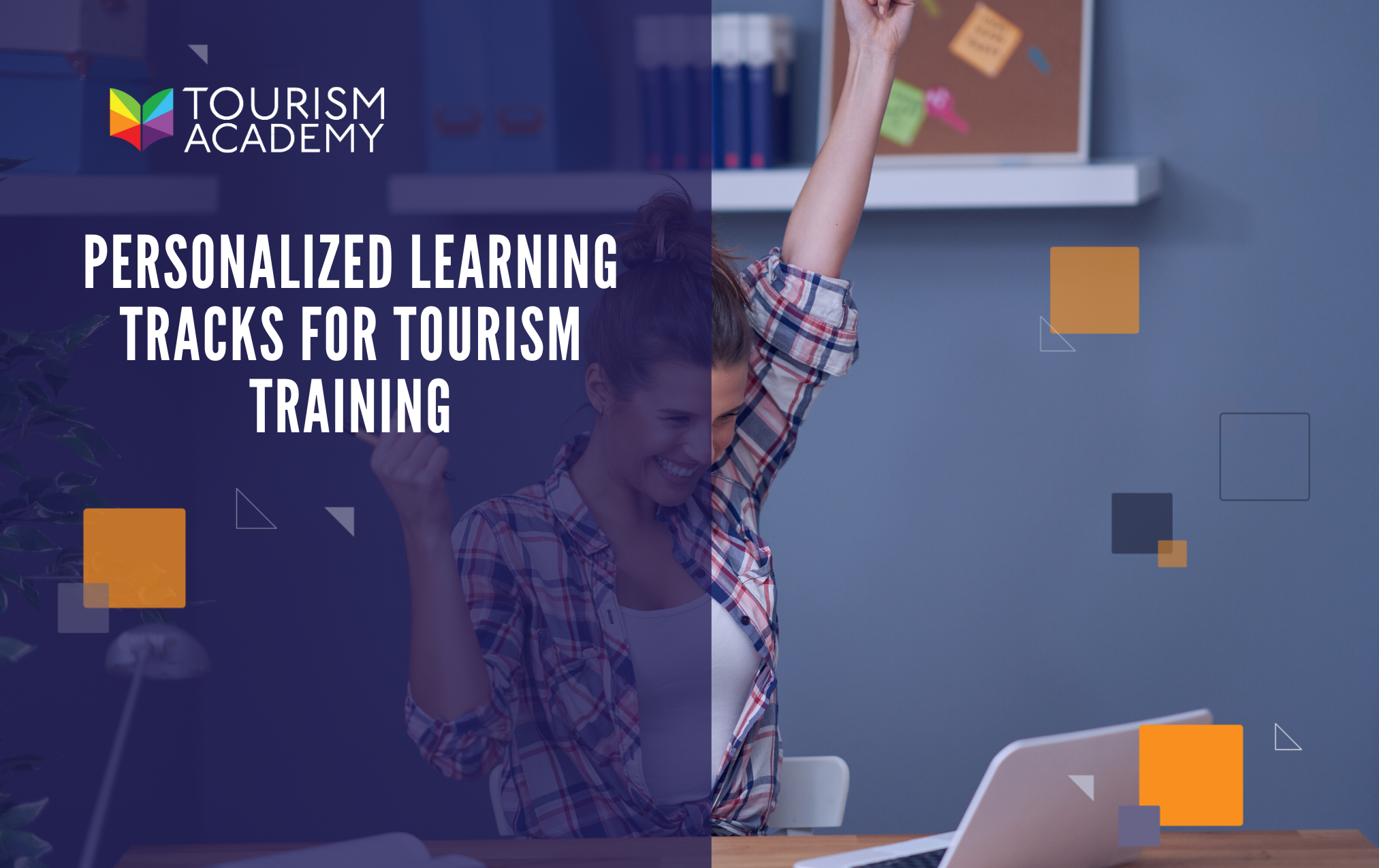
Personal Learning Tracks For Tourism Training
Online learning has the potential to create personalized learning tracks by leveraging technology and data analytics to tailor educational experiences to individual learners. It touches on the broader theme of education, which can apply to various fields, including tourism. Here's how online learning can create personalized learning tracks:
-
Assessment and Profiling: Online learning platforms can start by assessing the learner's current knowledge and skills through quizzes, tests, or surveys. This initial assessment helps create a learner profile.
-
Adaptive Content: Based on the learner's profile, online platforms can offer adaptive content. This means lessons' content and difficulty levels can be adjusted in real time to match the learner's abilities and pace.
-
Personalized Recommendations: Online learning systems can use algorithms to recommend courses or modules that align with the learner's interests and goals. For example, if someone is interested in tourism, the system might recommend sustainable tourism or hospitality management courses.
-
Flexible Scheduling: Learners can have the flexibility to choose when and where they study. This personalization of time and place allows learners to adapt their learning schedules to their individual preferences and lifestyles.
-
Feedback Loops: Online platforms can provide immediate feedback on assignments and quizzes, allowing learners to track their progress and identify improvement areas. This feedback loop can guide learners on what to focus on next.
-
Microlearning: Breaking down content into smaller, bite-sized modules makes it easier for learners to digest information at their own pace. This approach supports personalized learning by allowing learners to choose what topics they want to explore.
-
Peer Interaction: Online forums and discussion boards facilitate peer interaction, enabling learners to connect with others who share their interests. This can enhance the learning experience by encouraging collaboration and knowledge sharing.
-
Learning Analytics: Educational technology can track a learner's progress and engagement with the content. Analyzing this data can help identify areas where a learner struggles or excels, allowing for further personalization.
-
Goal Setting: Learners can set their own learning goals, whether completing a course, earning a certification, or gaining specific skills. Online platforms can help track progress toward these goals.
-
Resource Variety: Online learning provides access to various resources, including videos, articles, simulations, and interactive activities. Learners can choose the resources that best suit their learning style.
In summary, online learning platforms use various tools and strategies to create personalized learning tracks, tailoring the educational experience to individual learners' unique needs and preferences. While Stephen Ekstrom's profile primarily relates to the tourism industry, personalized learning can be applied to various fields, including professional development in the tourism sector.

Leave a comment